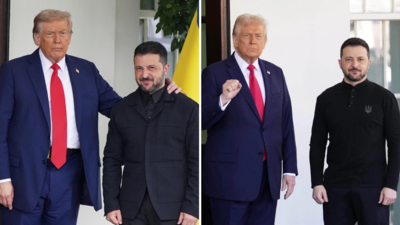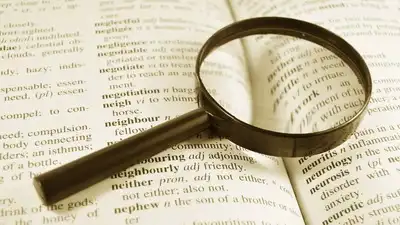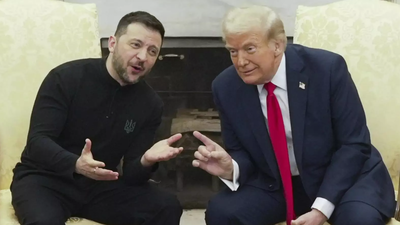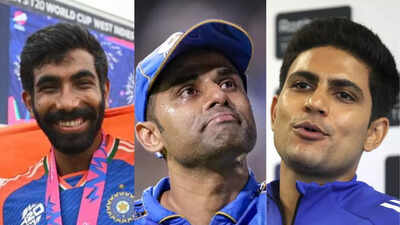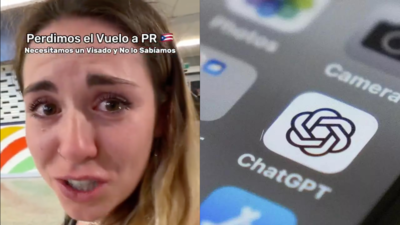“Calling every girl a red flag while dreaming of a perfect tradwife is honestly delulu behavior.”If that sentence doesn’t make complete sense, the Cambridge Dictionary is here to help. The publishers have just added 6,000 new words and phrases to their online edition, confirming how deeply TikTok and internet culture now shape modern English. Among the latest inclusions are “skibidi,” “tradwife,” “delulu,” and “broligarchy”, all words that might once have been dismissed as fleeting online slang, but are now deemed permanent enough to enter one of the world’s most authoritative dictionaries.Colin McIntosh, Cambridge’s lexical programme manager, explained the rationale: “Internet culture is changing the English language and the effect is fascinating to observe and capture in the dictionary. It’s not every day you get to see words like ‘skibidi’ and ‘delulu’ make their way into the Cambridge Dictionary. We only add words where we think they’ll have staying power.”
What the ‘skibidi’?

Source: YouTube/DaFuqBoom
For older generations, words like “skibidi” might seem baffling. The dictionary defines it as “a word that can have different meanings such as ‘cool’ or ‘bad’, or can be used with no real meaning as a joke.” An example of its use: “What the skibidi are you doing?”The word’s popularity was boosted by Skibidi Toilet—a viral animated YouTube series featuring human heads popping out of toilets—which then spilled over onto TikTok. For children and teenagers online, “skibidi” has become a playful filler word, capable of carrying emphasis, irony, or simply nonsense.
‘Tradwife’ and ‘delulu’
Other additions point to the cultural and political tensions baked into internet discourse. “Tradwife,” short for traditional wife, refers to women—especially social media influencers—who promote a conservative model of domesticity, celebrating their roles as homemakers, mothers, and submissive wives. The dictionary defines a tradwife as “especially one who posts on social media.” The phenomenon, which dates back at least to 2020, has been widely criticized for romanticizing outdated gender roles.

Source: iStock
“Delulu,” by contrast, is less divisive but equally rooted in digital culture. Defined as “believing things that are not real or true, usually because you choose to,” the word emerged over a decade ago as a way to mock obsessive K-pop fans who fantasized about dating their idols. On TikTok, the phrase “delulu is the solulu” became a rallying cry for manifesting wishes, while “delulu with no solulu” has been adopted as political slang. Earlier this year, Australian Prime Minister Anthony Albanese used it in parliament to attack his opponents.
From bros to broligarchy
Perhaps the most political of the new entries is “broligarchy.” A portmanteau of “bro” and “oligarchy,” it describes “a small group of men, especially men owning or involved in a technology business, who are extremely rich and powerful, and who have or want political influence.” The term reflects growing scrutiny of Silicon Valley’s outsized influence on politics, economics, and online culture—the same ecosystem where words like “skibidi” and “delulu” first spread.
Mouse jigglers and modern reality
Other fresh inclusions in the dictionary capture subtler post-pandemic realities. The “mouse jiggler,” for instance, refers to a piece of software or device that moves a computer mouse artificially to make it appear as though someone is working when they are not. It’s an unglamorous but telling reflection of how work-from-home culture has reshaped office dynamics.
Reactions: brainrot or evolution?
The update has divided opinion. Supporters welcome the recognition of digital slang, seeing it as proof that language is alive and adapting to how people actually speak. Critics, however, argue it erodes linguistic standards. One social media user quipped, “English is no longer a language—it’s a TikTok comment section.”Writer and artist Lee Escobedo took a sharper view in the Guardian, branding “skibidi” as an example of “brainrot.” He wrote: “Skibidi brainrot encapsulates a generation fluent in irony but starved for meaning. This kind of hyper-chaotic media serves as both entertainment and an ambient worldview for young men raised online. Their minds normalize prank-as-expression.”Whether embraced as playful or dismissed as chaotic, the inclusion of these words in the Cambridge Dictionary underscores a cultural reality: internet-born slang is no longer temporary. The compilers believe that terms forged in TikTok comment threads and viral videos are here to stay—and their addition marks the point where online culture cements itself as part of the English language’s permanent record.For old souls and grammar purists, there’s still some comfort in the fact that these words show up underlined in red when typed into most documents.







